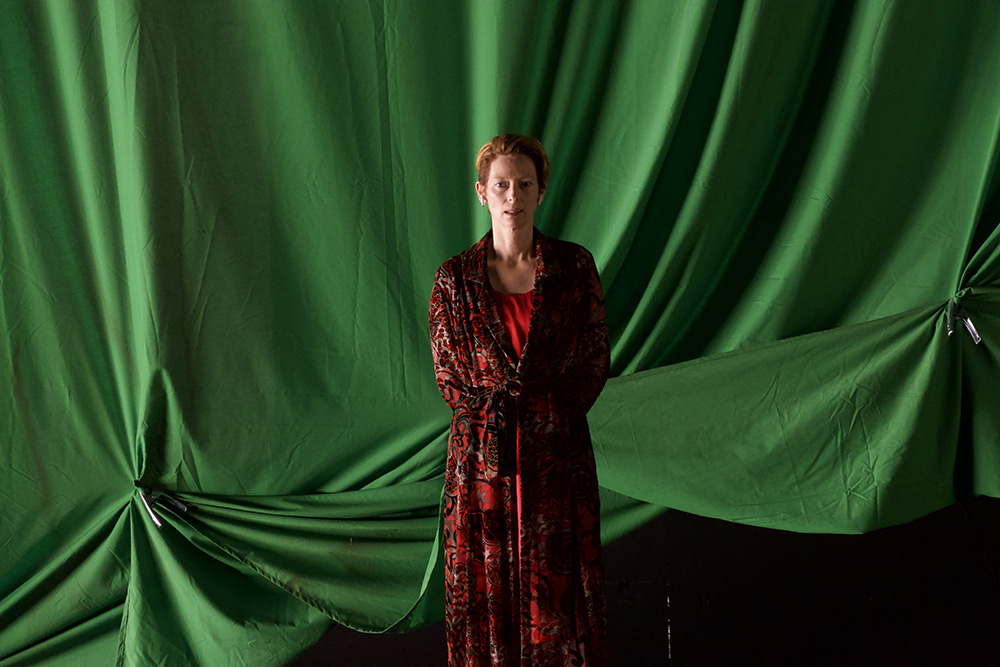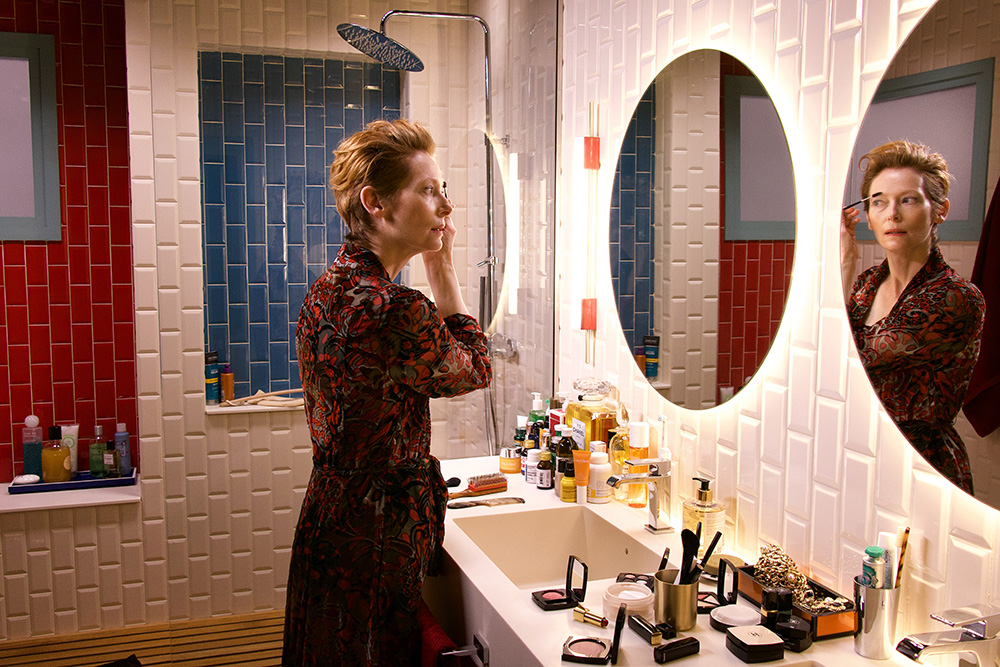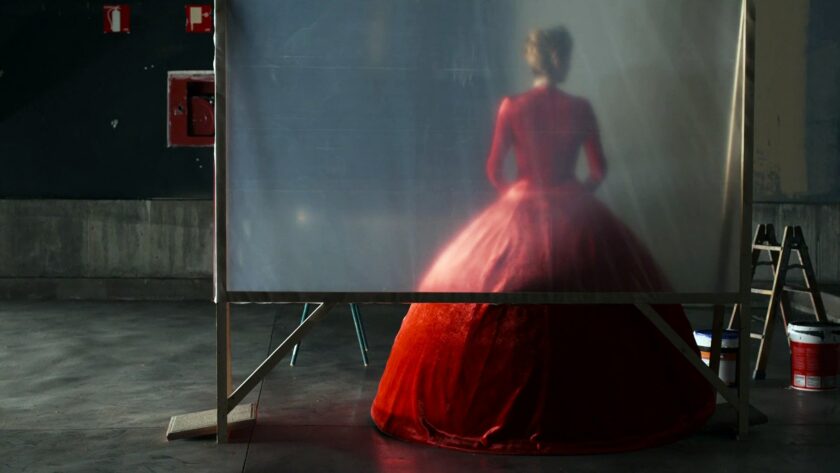BFI’s London Film Festival is in town! The FilmSoc Blog is back for the 64th edition of one of Europe’s largest film festivals, delivering a first look at the hits and misses of the 2020-21 season.
Editor-in-Chief Tomi Haffety praises Pedro Almodóvar’s highly anticipated short film starring Tilda Swinton.
There is a vibrancy to Pedro Almodóvar’s films that gives even a thirty-minute feature an unparalleled energy, and evokes nostalgia for films that are true works of art. Based on the 1930 play by Jean Cocteau, The Human Voice is Almodóvar’s first English language production and was shot over just nine days this previous summer in Madrid. Expressing a mourning for the cinema experience due to international lockdown restrictions, Almodóvar’s short masterpiece acts as a homage to the romantic allure of cinema.
The Human Voice creates a vibrancy and sentimentalism that is distinct to Almodóvar. Tilda Swinton plays a woman scorned, abandoned by her lover, waiting for him to return. Three days have passed and she is full of agony and ceaseless pacing. This one-woman feature is a theatrical sign of the times: Swinton lives in isolation with little contact to the world outside of her apartment, which is quite literally a set on a sound stage. Her remoteness adds another layer of madness to her already disturbed state of mind — a feeling relatable to most of us by this stage of restrictions. We are left unaware of the passing of time and a layer of our own disorientation is created to mirror Swinton’s. This climaxes in the sudden breaking of the fourth wall, separating the first act from the second.

Bold backgrounds add depth to this short film. Production designer Antxon Gómez’s high contrast set designs with mesmerisingly vibrant colours are masterful. Swinton’s flaming hair against the backdrop of nude artwork and red walls prove that this story is wrapped up in desire and passion. The film takes place exclusively in her technicolour apartment, apart from the opening scene, leaving room for a deep exploration into the dynamic between our agitated protagonist and her distant lover. Through Swinton’s rollercoaster of emotions and surrendering of her deepest secrets, the pain she has endured over the last three days spent accompanied only by a melancholy dog and her manic thoughts becomes obvious.
Costume designer Sonia Grande excels at fashioning a melodramatic wardrobe to assist Swinton in her sublime performance. From extravagant block colour ballgowns to perfectly tailored suits adorned with designer labels, Swinton’s position as a declining celebrity come undone by a lovers’ quarrel is made obvious. Giving an old play a modern twist, Almodóvar has incorporated both traditional theatre and contemporary themes with witty soliloquies as well as intense crescendos at moments of heated anger.

Of course, this wouldn’t be a true Almodóvar without the mastery of Julio Iglesias creating an intense soundtrack with the power to change the mood from one emotion to the next in a smooth musical transition. This is best exemplified in the final scene when Swinton becomes a triumphant phoenix rising from the ashes of her tormenting apartment. Proclaiming to the forlorn dog that she is his owner now, she makes it clear that she has become the owner of her own emotions and developed the empowerment that only comes after experiencing a dramatic fall from grace.
Watching The Human Voice feels like sitting in a theatre and embracing an atmosphere of passionate acting. Using AirPods to communicate with her lover gives Swinton the freedom to gesticulate and extend her acting beyond just her voice. We are relying on Swinton to carry the film, and she never falls short of this grand expectation. This is not Almodóvar’s first foray into Cocteau’s play, using it as a source of inspiration for his 1988 ‘Women on the Verge of a Nervous Breakdown’, however this is the first freely adapted version. It is short but intense, and leaves you wishing Almodóvar could have made it longer. Nonetheless, the one-woman show is saturated with colour and emotion, and is a successful modern adaptation of the play.




